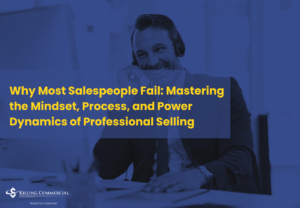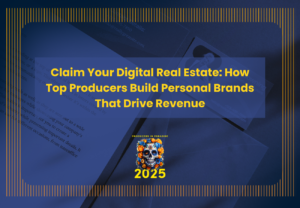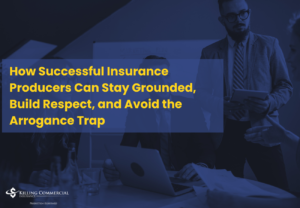
Why Most Salespeople Fail: Mastering the Mindset, Process, and Power Dynamics of Professional Selling
The truth about professional sales isn’t flashy, and it certainly isn’t about charisma. If you think selling is about having the “gift of gab,” winging it on calls, or leaning on your likability to win deals, you’re doing it wrong—and that’s why you’re struggling. In this post, we’re breaking down lessons from a brutally honest conversation with Benjamin Dennehy, the UK’s Most Hated Sales Trainer®, about why so many producers in commercial insurance and other industries fall short—and what the top performers do differently.







Responses